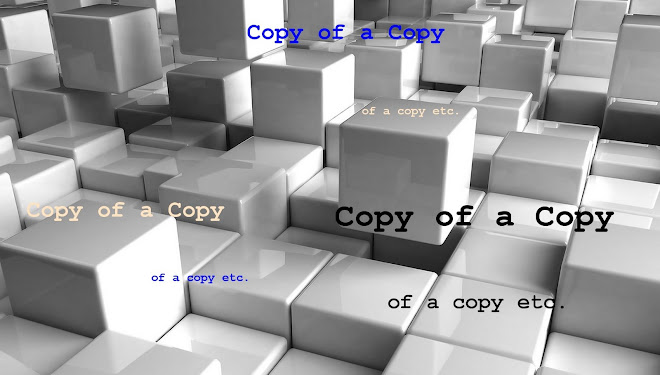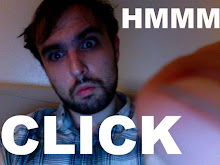
I remember spending hours clicking away at minesweeper on my family's first P.C. With no understanding of how the game worked, I never got too far. It didn't matter to me one bit though. All my kindergarten mind was interested in was interacting with this machine. Soon I was learning my first dos prompts, and sending the computer spiraling into safe mode with my inept commands. I had no idea then how much further the computer would reach into my daily life. I suppose the first revelation came when I realized that America Online was not the entire internet. Soon after that, Napster came around to save us all from twenty dollar C.D.'s, each which likely would only have one track worth listening to. Napster was such an amazing revelation.
I don't think it really occurred to any of my middle school friends that what we were doing on our parents computers could be illegal. After all, I had spent years copying Weird Al Yankovich albums for my friends, and P2P file sharing seemed like exactly the same thing. Our clueless parents certainly had no idea that we were all committing what the music industry would consider grand larceny until the aging rock group Metallica got
whiny and made a big stink about how their art was being mistreated. "It is sickening to know that our art is being traded like a commodity rather than the art that it is." Was the official statement from drummer Lars Ulrich in 2000 when it was announced that the band would be filing suite against Napster, The University of Southern California, Yale University, and Indiana University. It's a shame that bloated egos of rock stars were the ones who got to speak for the industry. It has been argued that their violent reaction started the industry down the path towards destruction. Rolling Stone writer and author of Appetite For Self Destruction may have put it best in
this interview when he said, "Had the record labels jumped into a deal with Napster when the time was right, when Napster was at its peak, I really do think that could've been a business model." Unfortunately, rather than embracing the digital revolution, the music industry reacted with fear, and a torrent of frivolous lawsuits, mostly against college students and unsuspecting parents has followed. Like many other industries, the music industry is left asking themselves just what they are going to do. The trend of illegal file sharing has done nothing but increase, and traditional business models seem worthless. It is my opinion, that the destruction of the music industry is merely a transitional phase that will make room for multiple, more elastic models for distributing intellectual properties.
To fully understand and appreciate part of the problem faced by industries dealing in intellectual property, you have to understand the collective psyche of the internet. The recording industry is up against a paradigm shift in the way people view copyright, and their relation to it. In the infamous
A Declaration of the Independence of Cyberspace, John Perry Barlow declares the internet free of all national law, and casts off old ideas. Among these is the idea that one can own intellectual property. "In our world, whatever the human mind may create can be reproduced and distributed infinitely at no cost." While this statement has already become somewhat dated, the sentiment remains. Reading the news online, watching free shows and movies, and listening to free music has become the societal norm.
Current copyright law may say that most of these things are illegal, but it certainly isn't the norm. It is only recently that copyright law was of any real importance to anyone other than people directly involved in these industries. A decade ago, Napster was just a baby, and the largest problem that the music industry had to worry about was teens making mix tapes for their friends. No one in the public sector had any reason to be concerned about laws regarding intellectual property. But I bet if I looked through your internet history today I could find at least a handful of things that could be considered copyright infringement. Everything from streaming a movie from a site like
allc.org, to posting a video of yourself lip syncing to an old boy band hit, are illegal under the current laws. "We are, technically speaking, a nation of copyright infringers." -John Tehranian
So does this mean that we are all going to pay for our unwitting crimes? The RIAA would like for us to, but luckily those of this opinion seem to be on the losing side of this boxing match. In the opposite corner of the ring, are people like Lawrence Lessig. Coming from a point of view that many would consider extremely radical, Lessig has been called an intellectual property communist by critics. This guy is on your side if you like to bit torrent, remix, or partake in most other modern pass times. His vision of the world is one where culture isn't limited by by the restraints of monetary vale, and any work can be reproduced an infinite number of times with any variation. This view actually makes a lot of sense when you look at the current trend. A large portion of music being produced is created from snippets of previously recorded songs, and every time you reply to an e-mail you are reproducing the original text of the sender. Content is generated anonymously every single day, and copied and pasted without a second thought. In the world of cyberspace, it seems logical to do away with most copyright laws.
But where does this philosophy leave the recording industry, and all other creators and distributors of intellectual property? For the most part, it leaves them out to dry. Under these rules being a musician would be impossible to turn into a career. Most IPs would be created as a hobby, and because of the ease of posting your own work to the internet, no middle men would be needed to bring the content to the people. The end result would likely be a flood of work with no quality control. Imagine going to a record store where you have to dig through piles of trash, hoping against hope to find something listenable. Already,
Myspace is somewhat like this, as are many other providers of free streaming music. Luckily this will not be the case.
In all likely hood we will see the emergence of multiple business models for distribution to pick up the slack left by the all but destroyed recording industry. Already we are seeing the industry attempting to adapt, with the advent of places like the iTunes store, and
Emusic. These stores though, are too much of a literal translation of the old model, and will likely be too little too late to save the recording industry. People are largely unenthusiastic when confronted with the idea of paying upwards of ten dollars for a package of digital files. To add to the problem of this model for digital distribution the music industry execs have opted to attach DRM protection to the files. While their fear of piracy is understandable, it doesn't appear that DRM has been at all beneficial to them. In response the the widespread complaints about the DRM protection on songs bought from the iTunes store, Steve Jobs issues
this response, explaining that until the record execs realize the error of their ways, his hands are tied. Since this statement, iTunes has gone DRM free, but it is still unclear whether of not this will bolster sales of their music, especially when piracy rates are soaring.
I think the most likely, and obvious solution for the time being is the model presented by the fine folks at
Amie Street music. Amie Street is an independent music download site, where much of the music is free. Let me explain. All music on Amie Street is free until it has been downloaded a certain number of times, at which point the price of the song is raised slightly. Songs reach a maximum price of ninety-eight cents once they have become popular enough. This system of community driven pricing feels right with the spirit of the internet. It also shows a level of humility not seen in the mainstream recording industry. After the CD boom of the 90's it often feels like the execs feel entitled to an inflated cash flow that they never really deserved. Well luckily the days of paying up to twenty dollars for a C.D., which is essentially just a piece of trash to litter your car with, are over.
Not only is the internet blossoming with new models of distribution, but many labels are finding that old models are being revived. Surprisingly, the buying of vinyl is becoming poplar once again. Many fans want to support the artists, but don't want to spend their money on plastic garbage (C.D.s). Instead they opt to buy something that feels more like a finished product. Something a little more permanent. This phenomena is definitely something that the labels should pay attention to. When trying to provide digital downloads, they should look for ways to make the product more than the sum of its parts. With vinyl copies you often receive large posters, and extended liner notes. Something similar should be done with MP3 downloads. On the last N.I.N release, The Slip, each track came with its own art work, rather than a single picture for the album. While I find the art boring, it is still an interesting angle. Record labels should no longer expect people to pay for garbage.
Before we see a few extremely successful models for distribution emerge, it is likely that we will see the industry fall further into disrepair. We also will likely see reform to currently existing copyright laws, as well as more specific laws regarding illegal downloading. For the time being you can probably continue to steal all of your music, and only run a slight risk of being sued. But soon enough we should have models of distribution that cater to all tastes. Such is the beauty of the internet. An infinite amount of space. We just have to wait for the industry to get desperate enough to start trying new things. *Looks at watch.* Shouldn't be too long now.
Sources:
Barlow, John. "A Declaration of the Independence of Cyberspace." homes. 08 Feb 1996. 21 Feb 2009 . Barlow, John. "IP in The Global Net." Homes. 13 Dec 1993. 21 Feb 2009 .Ginsburg, Jane C.,Essay - How Copyright Got a Bad Name For Itself(October 18, 2002). Columbia Journal of Law and the Arts, Vol. 26, No. 1, 2002. Available at SSRN: http://ssrn.com/abstract=342182 or DOI: 10.2139/ssrn.342182
Harvilla, Rob. "How the Music Industry Died: Steve Knopper's Appetite for Self-Destruction." Village Voice 06 Jan 2990 1-2. 21 Feb 2009 . Jobs, Steve. "Thoughts on Music." Apple 06 Feb 2007 21 Feb 2009 . Knopper, Steve. "RIAA WIll Keep On Suing." Rolling Stone 09 Jun 2005 21 Feb 2009 .Lawrence Lessig, The Vision for the Creative Commons: What are We and Where are We Headed? Free Culture, in Open Content Licensing: Cultivating the Creative Commons, Brian Fitzgerald, ed., Sydney: Sydney University Press, 2007.
(Can be found
here)
Tehranian, John,Infringement Nation: Copyright Reform and the Law/Norm Gap(2007). Utah Law Review, Forthcoming; Loyola-LA Legal Studies Paper No. 2007-46; U of Utah Legal Studies Paper No. 08-20. Available at SSRN: http://ssrn.com/abstract=1029151

.jpg)





.gif)
